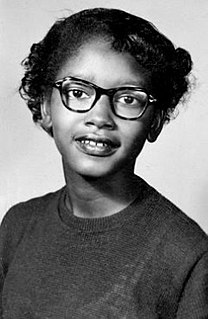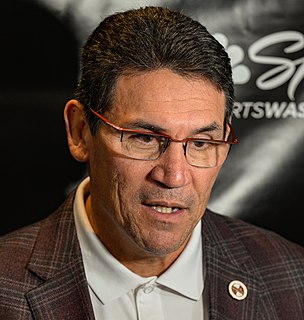A Quote by Jeff Bauman
Even in the ambulance ride I was trying to say something, trying to say, like, 'I knew who did it, I knew what went on.' And then I think they were kind of thrown back by that. They were like, 'What? You know what went on? You know what happened?' And I was like, 'Yeah, I saw the guy.'
Related Quotes
But I saw this video, not even the whole thing, and I just knew that it was going to be my favorite song for...for the rest of my life. And it still is. It's still my favorite song... Lincoln, I said you were cute because I didn't know how to say--because I didn't think I was allowed to say--anything else. But every time I saw you, I felt like I did the first time I heard that song.
Back then, as a teenager, I kept thinking, Why don't the adult around here just say something? Say it so they know we don't accept segregation? I knew then and I know now that, when it comes to justice, there is no easy way to get it. You can't sugarcoat it. You have to take a stand and say, 'This is not right.' And I did.
When I started out, maybe because I did Thelma & Louise early on - but people were always asking, "Are things better for women now?" I would say, "Yeah, I think so. It seems like it." Then a few years in, I started saying, "I think so. I'm getting a lot of good parts, but I don't know." Then eventually, I was like, "Google it. I don't know, but it doesn't seem great."
Most of the artists were trying to make a living, trying to get laid, trying to figure out who they were. They weren't trying to change the world. That's what other people put on them. I knew all those people. I knew them all, intimately and well. Bob Dylan. I would say that Bob Dylan is as interested in money as any person I've known in my life. That's just the truth.
He was one of those people who made you feel like they either didn't know or didn't care that you were in the room and if they ever did acknowledge your existence it was bizarrely score one to you, and twenty years later they'd tell you they'd always had a crush on you but never had the courage to say anything and you'd tell them, What? I didn't even think you liked me? and they'd say, Are you crazy? I just never knew what to say!
I remember I grew up in Pasadena in a very, kind of, homogeneous, kind of, suburban existence and then I went to college at Wesleyan University in Connecticut. And there were all these, kind of, hipster New York kids who were so-called 'cultured' and had so much, you know, like knew all the references and, like, already had their look down.
I grew up in Africa, in Nigeria. I never knew, I never had any reasonable encounter with football. I saw football on Sky News. I thought there were people dressed like extraterrestrials, you know, like they were going to Mars or something, headgears and shoulder pads. And I wondered why, as a child, why did they have to dress that way.
I don't even know if I ever knew - some sweatshop in Baltimore. I knew with my other relatives - some of the women were in the International Ladies' Garment Workers' Union and men were shop boys and things like that. I happened to be in Philadelphia, but the family was in New York. I could see what the union was doing for them.It really saved their lives.
Back then, as a teenager, I kept thinking, why don't the adults around here just say something? Say it so they know we don't accept segregation? I knew then and I know now that, when it comes to justice, there's no easy way to get it. You can't sugarcoat it. You have to take a stand and say, 'This is not right.'
I don't know if any of you feel this way, but it's like eventually, you see a woman come on screen and you go, "Oh, thank God!" You just sort of need a break from all this testosterone, which happened, I think, in one of my films, The Hurt Locker. I was in it for like five minutes, and people were like, "You were in that movie!" And I was like, "Well, kind of." And they were like, "No, you were!" 'Cause they needed a woman!
I just said, you know, this is a great track but this lyric, I don't believe it. It sounds like I'm trying to say something, instead of it naturally coming out of me, like I was saying something that I already knew. Anyway, I can't remember what it was. And either I threw it all out or I threw 90 percent of it out, and kept a line or two. That's happened a couple of times to me. Not too often, but a couple of times. Very aggravating when it does happen.
If everything I did failed - which it doesn't, it actually succeeds - just the fact that I'm willing to fail is an inspiration. People are so scared to lose that they don't even try. Like, one thing people can't say is that I'm not trying, and not I'm not trying my hardest, and I'm not trying to do the best way I know how.


































